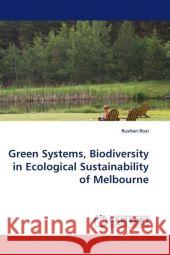Green Systems, Biodiversity in Ecological Sustainability of Melbourne » książka
Green Systems, Biodiversity in Ecological Sustainability of Melbourne
ISBN-13: 9783838329765 / Angielski / Miękka / 2009 / 364 str.
This thesis examines the ecological sustainability of Metropolitan Melbourne by demonstrating the metabolism of the built environment, exploring the holistic approaches to create sustainable cities, and examining the defining features of an ecologically sustainable built environment. By using the urban metabolism as a conceptual framework, this thesis analyzes the role of green systems and biodiversity and the impact of urbanization on ecosystems. From a historic perspective and using relevant spatial data, an urban metabolism model is developed with indicators to assess the urban metabolism quantitatively. Then the role of green systems and biodiversity are examined qualitatively. And then by using a GIS (ArcView), the urban development pattern of Melbourne is assessed; the changes to green systems and biodiversity during the urbanization are compared; the relationships between the natural assets and urban expansion are examined; and impacts of urbanization on natural assets are evaluated. According to these findings, a computer-based approach to achieve a sustainable urban environment through land-use planning is demonstrated with the Whatif? simulation software.











